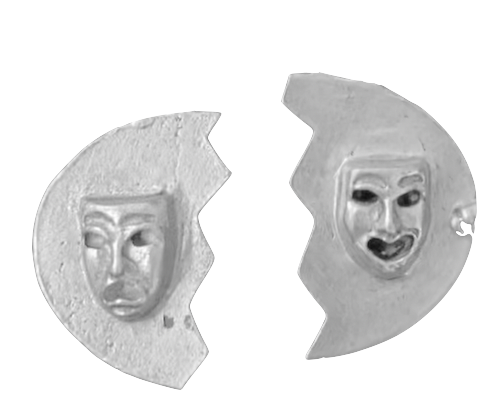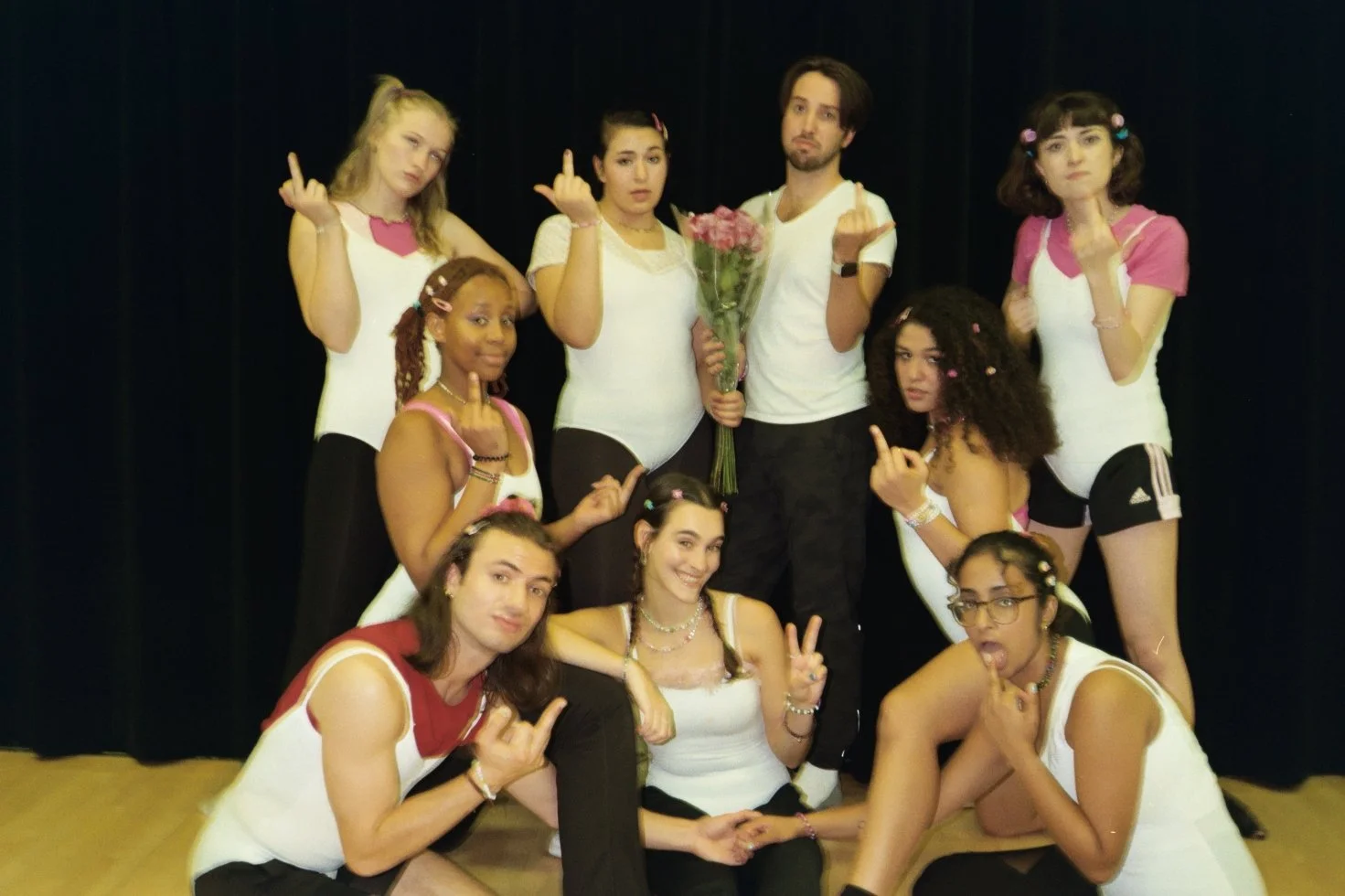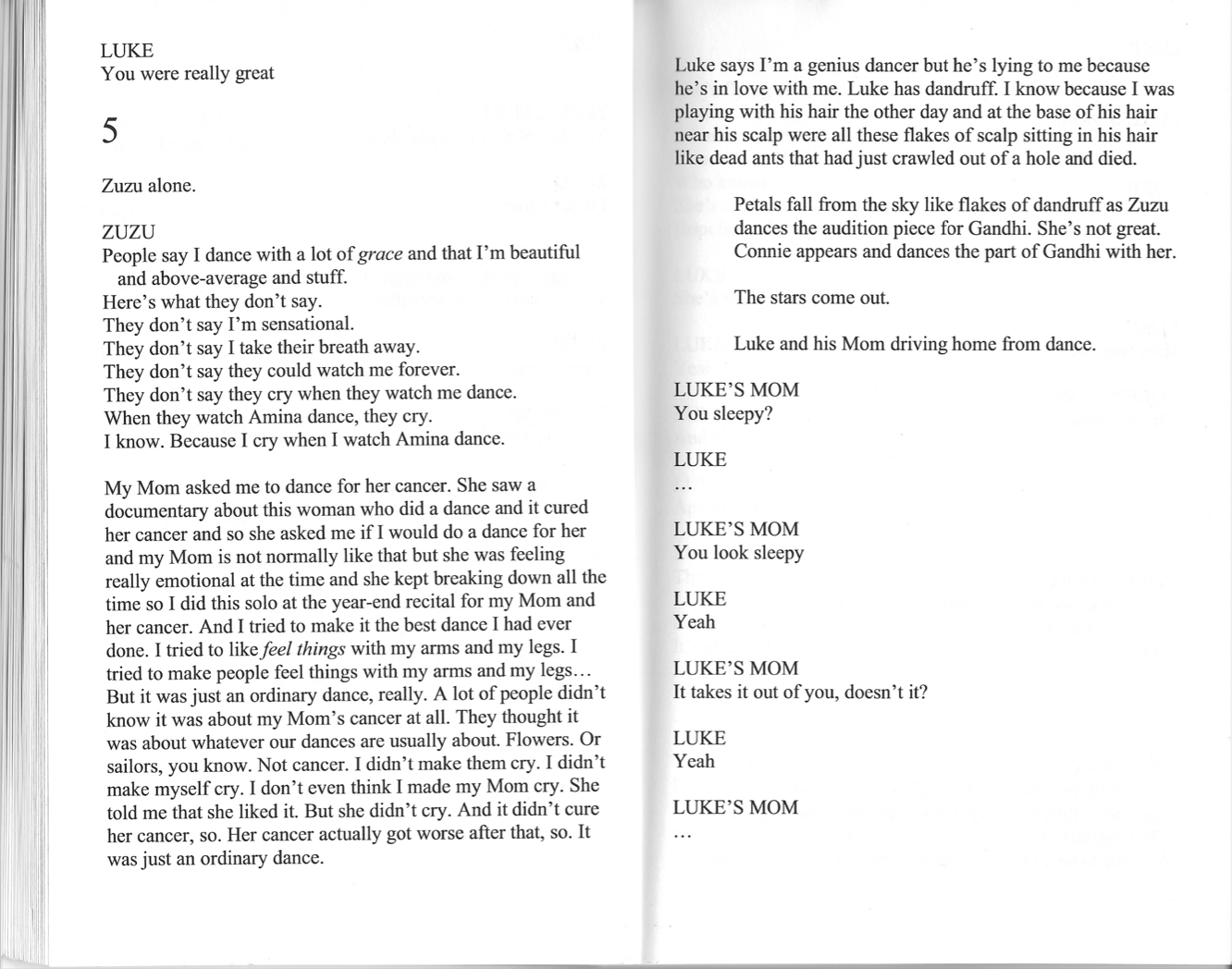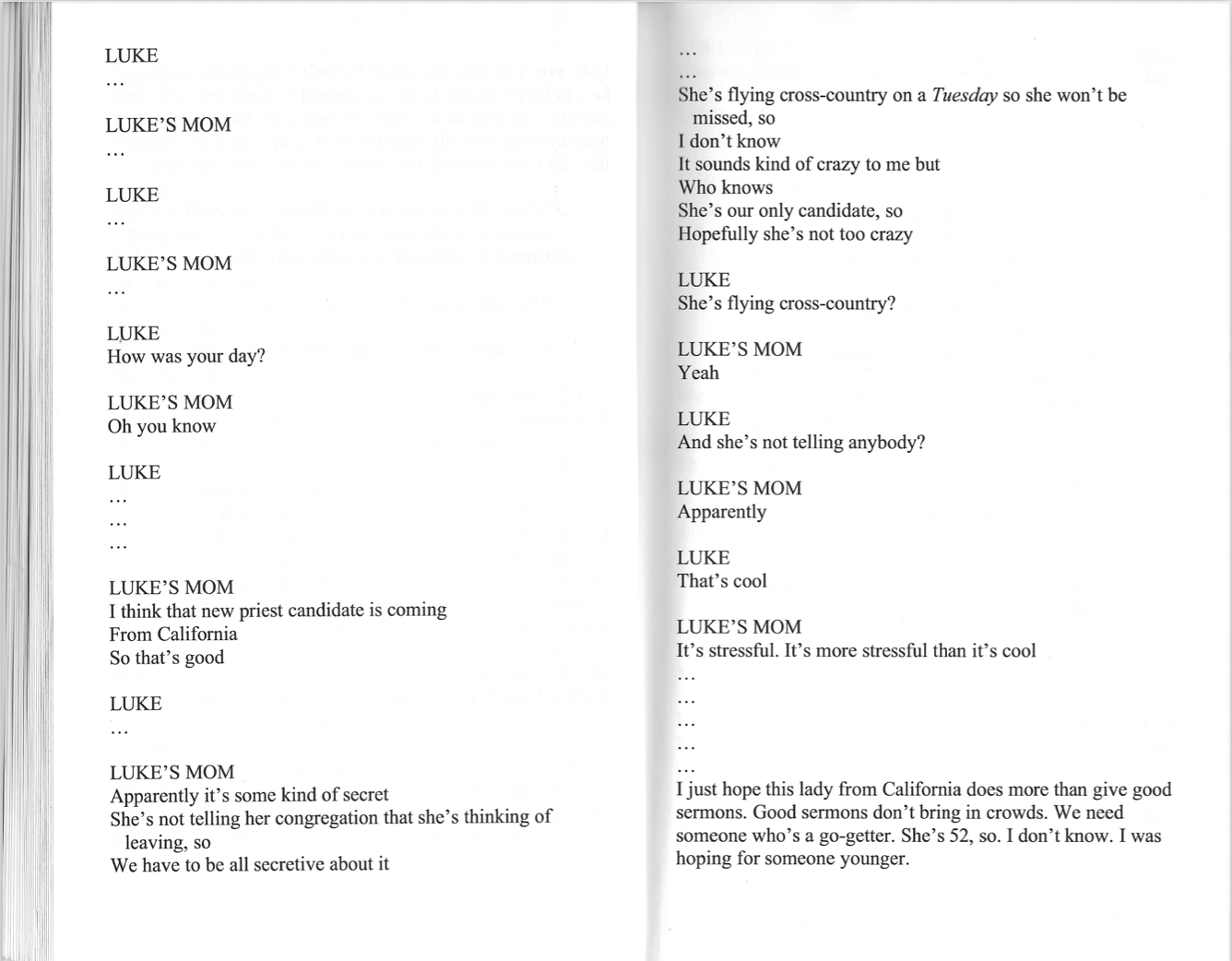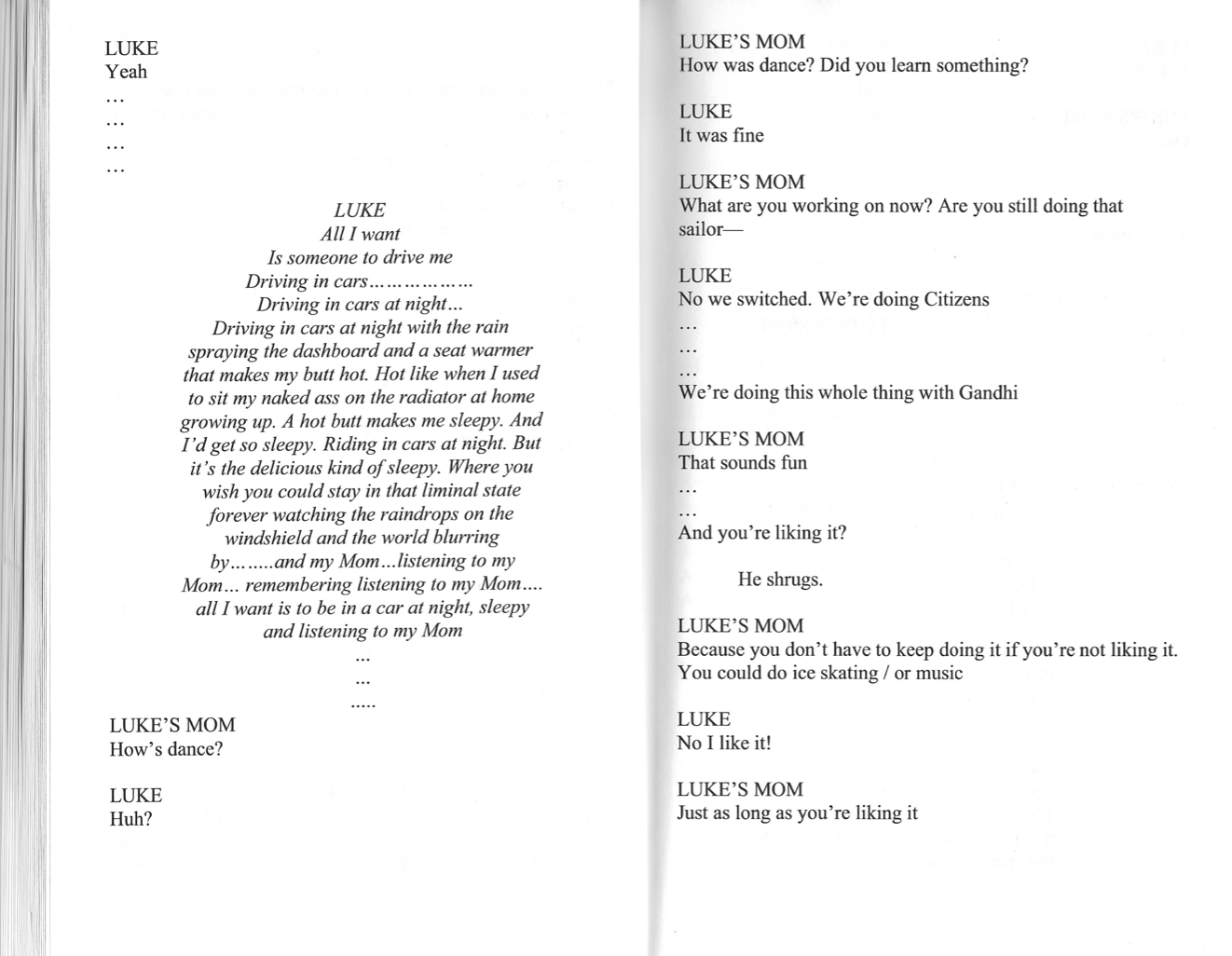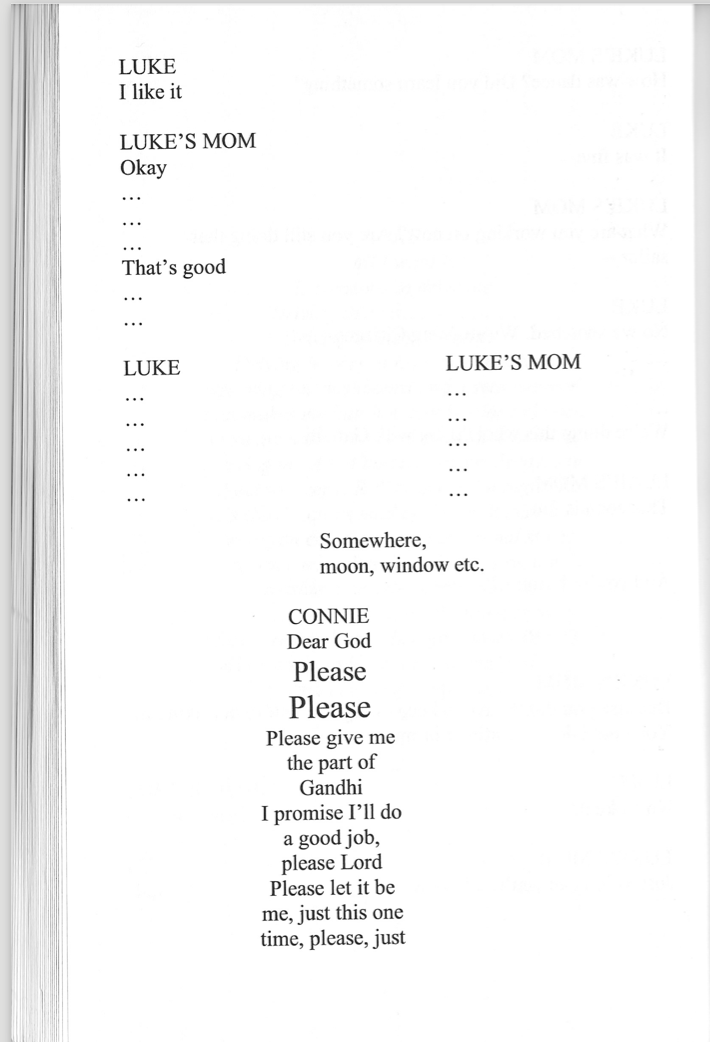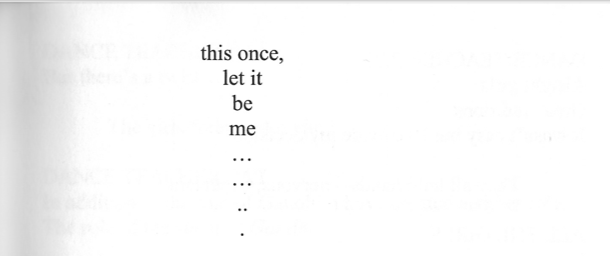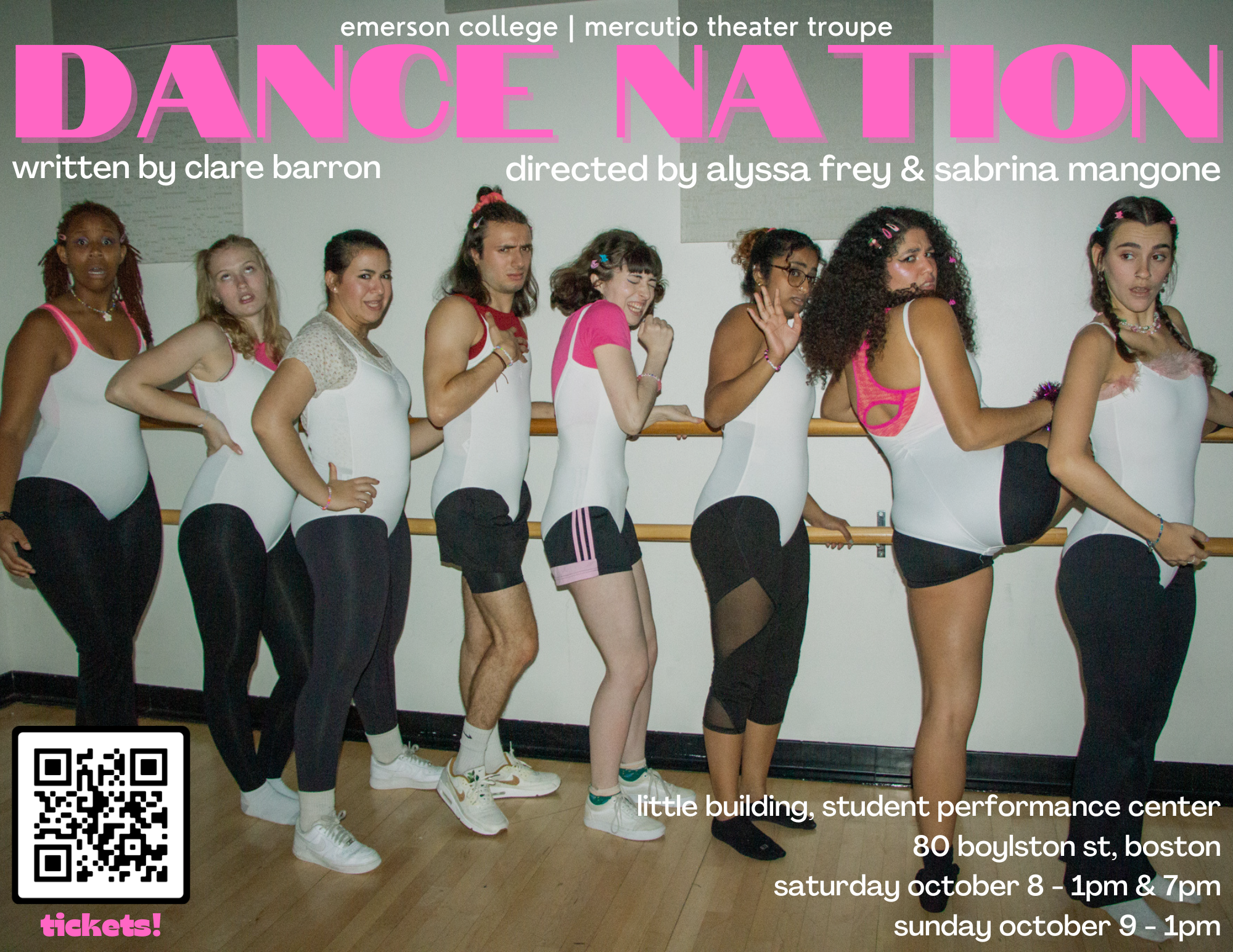dance dance dance
Dance Nation by Clare Barron was my pièce de résistance for my final year in college. With the help and visions of Sabrina Mangone, my co-director and choreographer, a small budget (though very big to any college student), a team of thirteen brilliant actors, and a small crew, we created a raw team that questioned never-ending girlhood, impending adulthood, sexuality, competitiveness, power, and living with passion.
Things I learned from directing this show: it’s actually difficult to sum up the experience of being a teenage girl. Surprise?
We were able to ease into this script fairly naturally. As mostly performing arts majors or something with an artistic vein, we were raised competitively - in fact most women are raised to be competitive. I won’t begin to dive into the concept of the male gaze - please just read John Berger’s theories of the male gaze in Ways of Seeing. This play does not evaluates its victimizing effects, but the power and confusion that stems through and out of it. As Clare Barron says, “I wanted to write this play because I wanted to present a different picture of teenage girls onstage. One where trauma wasn’t the central narrative. One where ‘being the best’ was.”
As the thirteen year old dancers get ready to dance for a big competition, they grapple with their talent, friendships, insecurities, and unadulterated youth. One moment they are bliss, the next they are hungry, and sometimes confused over what their selves are capable of. All in all, they never lose their imagination and a their endless supply of possibilities.
While we evaluated each characters’ quirks, we quickly revealed our own - the ones that had been shunned away out of shame or embarrassment of being too ‘girly’, too ‘silly’, too ‘much’.
This narrative defines that teenage girls are not what we label them to be, but what they know themselves to be. Often, we put girls into the binary of ‘meek and awkward’ or ‘mature and cute’. Dance Nation always the girls to be something more, or maybe all of it at once. The play explores the ghosts of these teenage girls through actors in a post-pubescent body. Often when performed, it is intended that the cast ranges in ages for the dancers, in fact it is encouraged that the actors do not play ‘teenage’ at all. In our limited production of college, students, most of the dancers were in their early 20’s. Still, the production and actors were able to serve as a reflection and recovery to our thirteen year old selves. This project was dedicated to who we once were, and something that made ours unique was that we all thirteen during the same era of 2013.
CAST
Upper Left: Katie Kendrick, Ellie Karris, Jack Darnell, Tori Eriavez
Middle Row: Kwezi Shongwe, Sofia Inez
Bottom Left: Carl Kleifgen, Taylor Paine, Aswathi Menon
Photo: Madison Murillo @rad.mad
Co-Director/Choreographer: Sabrina Mangone
As we flash backed in time to our 2013 selves, we took pieces of our childhood and collaboratively nestled them in our stage. You’d find Kaboodles, iPods, music-cranked jewelry boxes, One Direction t-shirts, and tutus that would remind you of your childhood if you were growing up in those same years. Once incorporated, we cringed at our old interests, clothing and music, which in turn gave us the opportunity to actually comfort our thirteen year old selves who’s passion was turned to shame.
There was a collective rage, which most of my female identifying collaborators I know have felt when looking back on our childhoods, our girlhoods. The characters share this rage - in fact, they bark, snarl, and growl it out, which became pure cathartic to work through, which I believe was felt in the audience. Their chants, their wants and fears are real, palpable, and terrifying.
What makes this script so specialize is that it gives us perspective of different types of teenage girls, never comedically introducing stereotypes, but making them authentic and felt. Zuzu is always second best, no matter how hard she tries, especially to her best friend, Amina who is the star of the group, the teacher’s favorite. Connie is talented and soft, while Maeve, the least talented is bold and uninterested in the sport but rather the spirit of it all. Ashlee and Sofia ‘know what’s up’, as is stated in the script.
My favorite moment?
Scene 5. Zuzu begins the scene with a soliloquy of what dance means to her; how she might be able to heal the world through dance. She starts to dance gracefully with petals (or dandruff?) that fall from above. Connie joins her and together they dance the role they want, the role they both, equally deserve. It might be the only part in the show where Zuzu dances her best because this is how she sees herself. Here, Connie is also given the opportunity that she deserves: not to be belittled to the role of ‘Gandhi’ because of her race, but rather the most beautiful, perfect dancer that ever did dance. This moment reflects the grace, hope, and possibilities that young women hold - specifically women of color who have been historically denied the role of ingenues.
Luke talks to his mother about dance. As a tween, we often protect our feelings, our truth, especially from adults. We are just beginning to rip away from childhood comforts and have minds of our own, and to me, this is exactly what I see Luke doing in this scene. As he fades away from the conversation, he thinks to himself just how comfortable he is being with his mom. The conflict of nostalgia and independent future is the striking feeling of this moment which we represented by the music choice. Running Down a Dream by Tom Petty played while his mother talked, but once Luke enters his head, we played Thirteen by Big Star.
We then transition quickly back to Connie, who sits in prayer, politely requesting that she be granted the opportunity she deserves.
Religion undertones often grace this play, even if the dancers don’t know who they’re praying towards. Is it dance? Is it one another? Is it their past and future selves? Is it girlhood? Is it God? When they chant, is it for themselves? Why chant?
Our production received an Evvy Nomination for Best Sound Design. Some song selection included:
Gems - Interlude by Little Simz
Hell of A Life by Kanye West
Kick Your Game by TLC
Runnin’ Down A Dream by Tom Petty
Thirteen by Big Star
brutal by Olivia Rodrigo
Buttons by The Pussycat Dolls
you should see me in a crown by Billie Eilish
HUMBLE. by Kendrick Lamar
Work Bitch by Britney Spears
World on Fire by Sarah McLaughlin
my future by Billie Eilish
POWER by Kanye West
This script is a delightful challenge. Clare Barron is a masterful writer who very clearly understands the female experience and asks others to join her in its fullness. Dance Nation additionally has wonderful scenes and monologues for female actors of all ages! I recommend reading the script whether you see the production or not.
